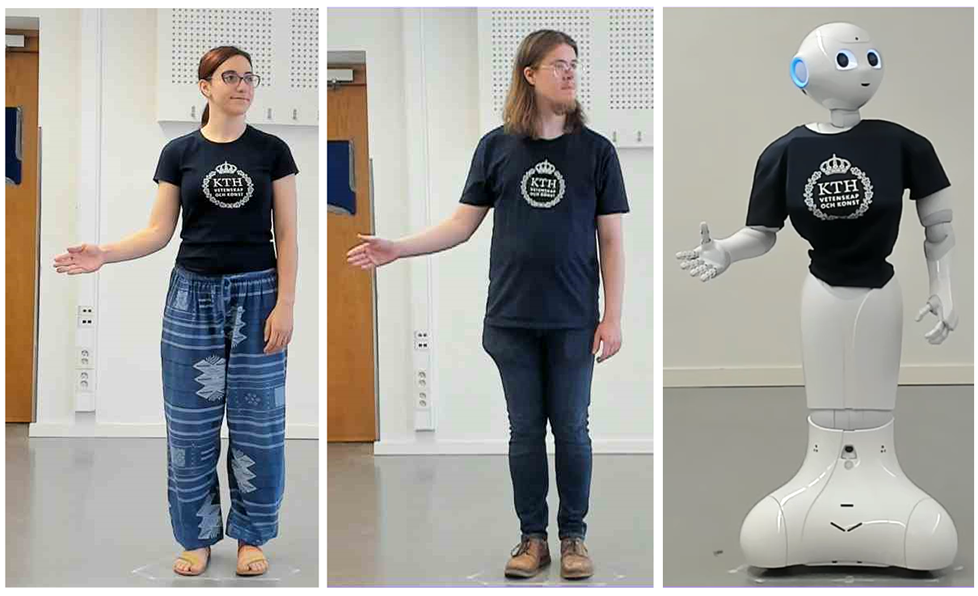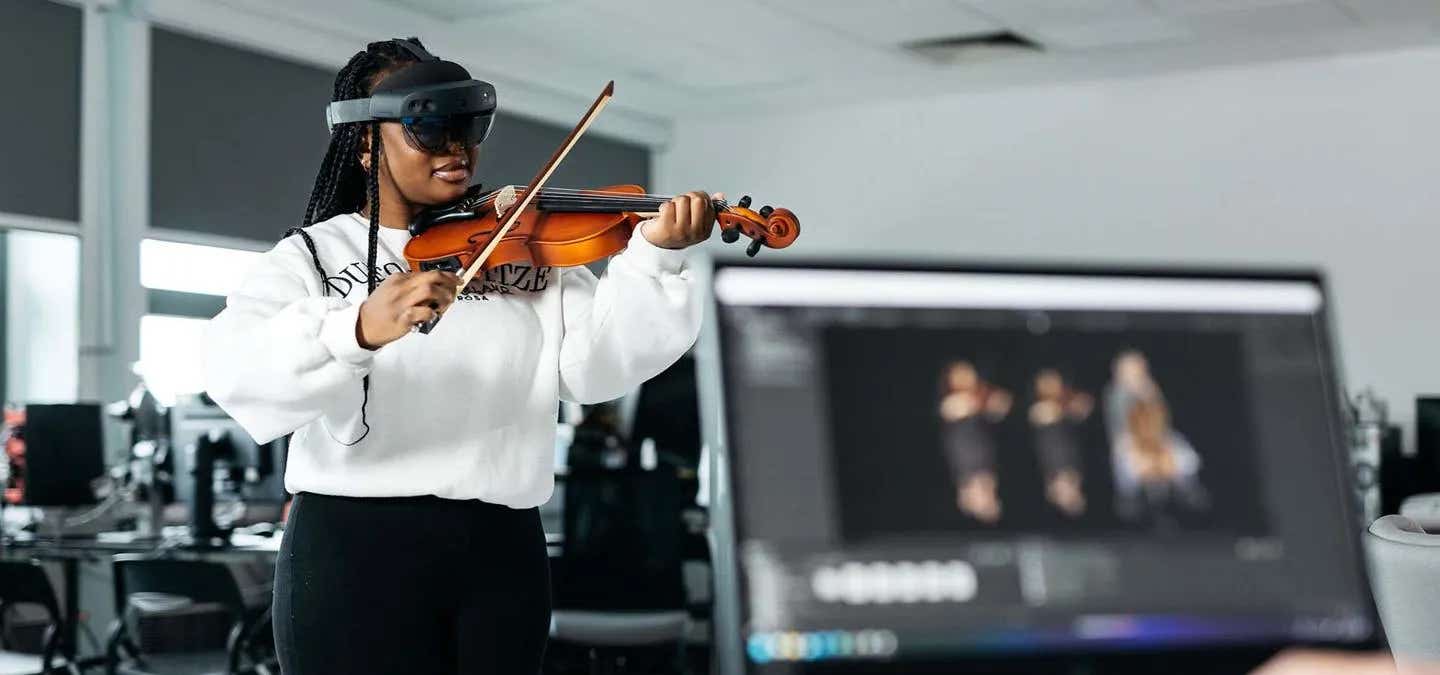Polite robots: The future of healthcare
Research is being conducted at KTH with humanoid robots to study politeness as a cornerstone in shaping social interactions.

Research is being conducted at KTH with humanoid robots to study politeness as a cornerstone in shaping social interactions. (Photo: KTH)
Politeness plays a crucial role in human interactions, whether in everyday life or within the healthcare setting. But what about when humans interact with service robots?
Sahba Zojaji, a PhD student in computer engineering at KTH Royal Institute of Technology, delves into this question in his thesis titled "Embodying politeness in persuasive humanoid agents for small group scenarios."
According to Zojaji, human-robot relationships extend beyond mere politeness; they encompass creating interactions that feel natural, respectful, and empathetic. Achieving this involves integrating politeness into both verbal and non-verbal aspects of human-robot interactions.
Zojaji has conducted several user studies using humanoid robots, which are robots designed with human-like features, to explore the role of politeness in shaping social interactions.
The increasing prevalence of robots, particularly in healthcare settings, raises ethical concerns. In countries like Japan, robots are already assisting the elderly with tasks such as medication reminders and physical assistance.
However, Zojaji emphasizes the need for ethical guidelines regarding the use of persuasive tactics by robots, particularly in healthcare contexts. Balancing innovation with ethical responsibility requires collaboration between academia, industry, and policymakers.
Related Stories
Zojaji asserts that programming politeness into robots can enhance their ability to navigate diverse social environments, fostering greater acceptance and sustainable interactions between humans and robots.
Moreover, cultural differences must be considered, as politeness norms vary between countries like Sweden and Japan. Robots must be programmed to recognize and adapt to these cultural variations to effectively interact with users from different backgrounds.
Beyond healthcare, Zojaji sees potential for robots and computer-generated characters in educational contexts, particularly in medical training programs. By offering virtual environments based on real cases, this technology enables safe learning experiences for students without risking harm to actual individuals.
Zojaji asserts that programming politeness into robots can enhance their ability to navigate diverse social environments, fostering greater acceptance and sustainable interactions between humans and robots. (CREDIT: Creative Commons)
Zojaji's research highlights the importance of incorporating politeness into human-robot interactions, particularly in healthcare settings. Ethical considerations and cultural differences must be carefully addressed to ensure that robots contribute positively to society while respecting human autonomy and cultural diversity.
Other Robot Research in Healthcare
A team of roboticists, computer scientists and psychiatrists from the University of Cambridge carried out a study with 28 children between the ages of eight and 13, and had a child-sized humanoid robot administer a series of standard psychological questionnaires to assess the mental wellbeing of each participant.
Robot shaking hands with researcher. The researchers say that robots could be a useful addition to traditional methods of mental health assessment, although they are not intended to be a substitute for professional mental health support. (CREDIT: University of Cambridge)
The children were willing to confide in the robot, in some cases sharing information with the robot that they had not yet shared via the standard assessment method of online or in-person questionnaires. This is the first time that robots have been used to assess mental wellbeing in children.
The researchers say that robots could be a useful addition to traditional methods of mental health assessment, although they are not intended to be a substitute for professional mental health support.
For more science news stories check out our New Innovations section at The Brighter Side of News.
Note: Materials provided above by University of Cambridge. Content may be edited for style and length.
Like these kind of feel good stories? Get the Brighter Side of News' newsletter.
Joshua Shavit
Science & Technology Writer | AI and Robotics Reporter
Joshua Shavit is a Los Angeles-based science and technology writer with a passion for exploring the breakthroughs shaping the future. As a contributor to The Brighter Side of News, he focuses on positive and transformative advancements in AI, technology, physics, engineering, robotics and space science. Joshua is currently working towards a Bachelor of Science in Business Administration at the University of California, Berkeley. He combines his academic background with a talent for storytelling, making complex scientific discoveries engaging and accessible. His work highlights the innovators behind the ideas, bringing readers closer to the people driving progress.



